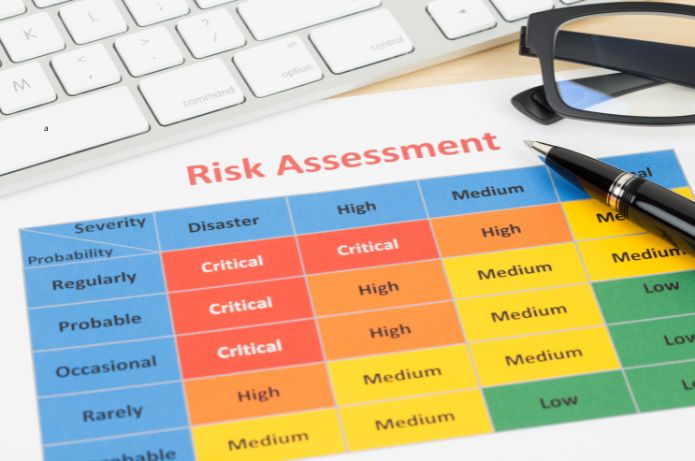Black Friday is approaching and the digital landscape becomes riskier, NordVPN research shows that attempts to access fake web stores increased by 35% in October compared to September, and the number is expected to grow even more during Black Friday and Cyber Monday.
On clandestine platforms, phishing kits and fake store layouts are on the rise. NordVPN data reveals that between September 1 and October 31, the Threat Protection Pro DID tool blocked 13.4 million attempts to access fake stores, a significant jump from the 9.9 million recorded in September.
Adrianus Warmenhoven, cybersecurity expert at NordVPN, points out: “Cybercriminals are using AI tools to create fake stores quickly and more efficiently.These fraudulent websites not only collect personal and payment data from consumers, but in some cases result in direct financial losses where the customer pays for products that they never receive”.
Professional-looking websites, designed to look like legitimate stores, are designed to trick even the most cautious consumers. Some fake the visual identity of big brands, using tricks like slightly altered URLs (e.g.,“Arnason” “Amazon”), and link shorteners to mask phishing sites.The practice makes fraudulent websites look more trustworthy, misleading consumers.
In addition, it is easy for hackers to find kits ready to create fraudulent websites, widely available on the internet. There are even courses and forums where you can learn how to use these tools, making it easier for people with little technical knowledge.
The dark web also hosts subscription-based malware-as-a-service services for only US$ 100-150 per month, while phishing kits are usually available for free.
The NordVPN expert explains that criminals can find free phishing kits, fake website layouts starting at US$50 (about R$ 289), and even malware services under subscription for about US$150 (R$ 866) monthly.More advanced items such as cookie grabbers can cost US$400 (R$ 2.310) or more and allow the theft of active cookies from users, facilitating account intrusions without the need for passwords.
Scammers impersonate major platforms such as PayPal, Amazon, Shopify, banks, and even Netflix to target their customers. The features used to create these fake store pages include customization & due to the use of HTML & A. I. coding promise easy setup. These pages feature card verification details and strong anti-bot systems.In addition, they are designed to block website verification and have the ability to bypass OTP (single use password) and 2FA systems, while being designed to avoid” detection, says Warmenhoven.
As a result, cybercriminals rely on a wide range of tools to create scams and gain support through easily accessible Telegram channels and forums, as highlighted in the announcements below.

Dark web offers: malware and cookie scanners



Cookie capture pages are among the most expensive online scam kits found on the dark web. These pages are specifically created to capture cookies from the user's browser or from social media platforms such as Facebook, which hackers can use for nefarious purposes.
“NordVPN's research revealed that over 54 billion cookies were found for sale on the dark web, highlighting the scale of this issue.You may not realize that if a hacker gets your active cookies, they really won't need login credentials, passwords or even multi-factor authentication to log in and take control of their accounts.The most commonly stolen personal information from cookies includes names, email addresses, cities, passwords and” addresses, Warmenhoven says.
To protect yourself, Warmenhoven suggests a critical approach: “If the offer seems too good to be true, be wary. Also, details such as grammatical errors, poor quality images and broken links usually indicate fraudulent website”. It offers more tips for identifying trustworthy websites:
- Check contact information: Legitimate websites feature physical address, phone, and email usually visible in the header, footer, or “About” section.
- Read privacy policies and terms of use: Legitimate websites have clear policies for returns and refunds.
- Avoid unusual payment methods: Sites that insist on bank transfers, gift cards or cryptocurrencies should be viewed with caution.
- Research the reputation of the seller: Search for the store name in combination with terms like “evaluations” or “fraude” and avoid sites with negative reviews.
Strategies to avoid scams during Black Friday
Despite the growing digital threat, there are strategies that can help mitigate the risks. The use of Threat Protection Pro by NordVPN blocks malicious websites, analyzes downloads for malware and blocks trackers, improving the security of user data.Warmenhoven also suggests:
- Detect phishing: Malicious emails and SMS messages are one of the leading causes of malware infection.
- Avoid downloads from unknown sources: Opt for official stores or verified websites to download apps and updates.
- Delete cookies regularly: This minimizes the data available to attackers.
- Enable multi-factor authentication (MFA): This adds an extra layer of security, useful in case a hacker gains access to your credentials.
- Use dark web monitoring tools: NordVPN's Dark Web Monitor tracks leaks and alerts you if user email is found in compromised databases.


